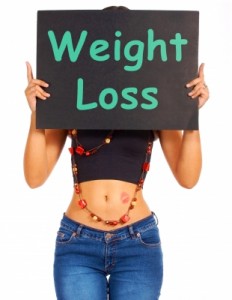 You’ve seen them advertised on TV, read about them in books, magazines, and on the internet: diet products and plans with results that are amazing, breakthrough, and nothing short of miraculous. But should you part with your money and try what seems to be too good to be true? No. If it sounds too good to be true, it probably is. In fact, many of these diet plans are downright harmful — keeping calories and nutrients so low that your body burns muscle right along with fat. And those supplements…well, you can’t know for sure what’s really in them, since the manufacturers don’t have to follow the same rules as food or drug manufacturers.
You’ve seen them advertised on TV, read about them in books, magazines, and on the internet: diet products and plans with results that are amazing, breakthrough, and nothing short of miraculous. But should you part with your money and try what seems to be too good to be true? No. If it sounds too good to be true, it probably is. In fact, many of these diet plans are downright harmful — keeping calories and nutrients so low that your body burns muscle right along with fat. And those supplements…well, you can’t know for sure what’s really in them, since the manufacturers don’t have to follow the same rules as food or drug manufacturers.
POWERFUL WEIGHT LOSS TIP
If it sounds too good to be true, it probably is.
Don’t waste your money or put your health at risk before getting the lowdown on any “sounds too good to be true” weight loss program. Here’s the scoop on a few of the more popular ones.
The Plan: SENSA
- The Claim: Losing weight is as simple as sprinkling a tasteless powder on your food. You don’t need to change your diet, count calories, or do anything else differently. Sensa works with your sense of smell to trick you into feeling full.
- The Scoop: The only evidence of Sensa’s effectiveness comes from the company itself. No research has been published in a peer-reviewed journal.
The Plan: THE MASTER CLEASE DIET (aka Lemonade Diet)
- The Claim: This 10-day cleansing diet will rid your body of toxins and about 10-20 pounds.
- The Scoop: The only food you are allowed is a drink you make yourself from water, real maple syrup, lemon juice, and cayenne pepper. Plus, you have to take nightly laxatives. Over the course of a day, you will consume just 500-800 calories, which is the reason for the weight loss. The diet results in inadequate nutrition and loss of lean body mass. The laxatives are not necessary to detoxify your body, but they could result in the loss of healthy bacteria in your intestines.
The Plan: WHEAT BELLY DIET
- The Claim: Eliminating wheat is the holy grail of weight loss.
- The Scoop: The diet described in this book is a low-carbohydrate diet. These diets tend to result in more rapid initial weight loss when compared to other diets. However, they do not result in greater weight loss over time. Giving up wheat could lead to either a more healthful diet or a poor diet, depending on the foods replacing wheat products. For example, if you trade wheat-containing junk foods like cookies for wheat-free varieties, your diet has not improved. If you trade those foods for fruits and vegetables, you will have a more healthful diet and will likely consume fewer calories, which will then cause weight loss.
© www.foodandhealth.com – reprinted with permission
Now I’d love to hear from you.
Have you ever been tempted by a weight loss claim that sounded too good to be true?
Please share in the comment section below. Your ideas could be very helpful to other readers.
Meanwhile, if you want help getting off the diet roller coaster, take my free Self-Assessment today at https://njnutritionist.com/freeassessment
Image courtesy of Stuart Miles / FreeDigitalPhotos.net


I fell for the low fat diet spiel back in the 90’s where food manufacturers just replaced fat with more sugars (syrup) to make it taste better. Now we know how bad that is and caused more cases of diabetes.
Well said, John. I fell for that too! I’m older and wiser now but many still believe “low-fat” is universally healthy. Research has shown that people tend to overeat these low-fat/high-sugar foods, thinking they are healthy or low in calories; they are neither. Sometimes these foods contain as many calories as the original full-fat product due to the amount of added sugar.